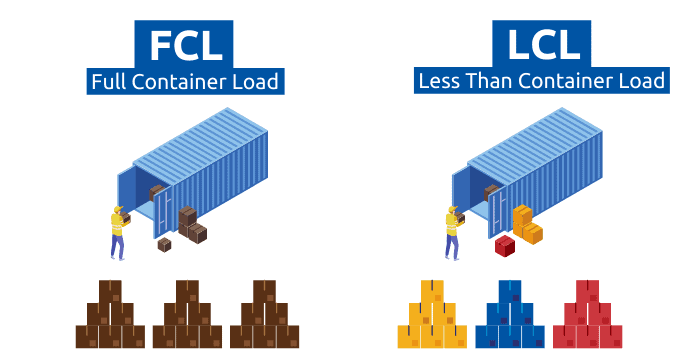Shipping from China to Nigeria has become one of the most important trade routes in Africa. With Nigeria’s expanding economy, increasing demand for Chinese goods, and advanced seaport infrastructure, this shipping route is essential for both large-scale importers and small businesses. Whether you’re moving electronics, clothing, or heavy machinery, the right shipping choice can save you both time and money.
1. Main Shipping Methods from China to Nigeria
When planning a shipment, you’ll generally choose between:
- Sea Freight – Cost-effective for large or heavy cargo, slower transit times.
- Air Freight – Faster but more expensive, ideal for urgent or high-value goods.
- Express Courier – Door-to-door service for small, time-sensitive parcels.
2. Key Nigerian Ports and Airports for Imports
- Apapa Port, Lagos – Nigeria’s largest container port.
- Tin Can Island Port – Key gateway for vehicle imports and containerized goods.
- Port Harcourt Port – Serving southern Nigeria, especially the oil sector.
- Murtala Muhammed International Airport (LOS) – Nigeria’s busiest air cargo hub.
3. Estimated Shipping Times & Conditions
| Shipping Method | Average Transit Time | Common Conditions & Terms |
|---|---|---|
| Sea Freight (FCL) | 35–45 days | FOB, CIF, DAP available |
| Sea Freight (LCL) | 38–50 days | Consolidation required |
| Air Freight | 5–8 days | Weight/volume restrictions |
| Express Courier | 3–6 days | Door-to-door, limited by weight |
📌Note: Transit times may vary due to customs clearance, port congestion, and seasonal demand.
4. Shipping Costs – What Affects the Price?
Your shipping cost will depend on:
- Cargo weight and volume.
- Chosen shipping method.
- Port handling and local delivery fees.
- Customs duties, VAT, and other charges.
- Seasonal rate fluctuations.

5. Customs Clearance in Nigeria – Complete Process
Customs clearance is a critical stage when shipping from China to Nigeria. Delays here can add significant costs, so knowing the correct procedure is key.
📍Required Documents
- Form M – Must be approved before shipment leaves China.
- Proforma Invoice – Provided by the supplier with shipment details.
- Packing List – Detailed cargo breakdown.
- Bill of Lading / Air Waybill – Shipping proof.
- SONCAP Certificate – Mandatory for regulated goods.
📍Step-by-Step Clearance
- Pre-Shipment – Submit Form M and required documents via an authorized bank.
- PAAR Issuance – Nigeria Customs Service issues the Pre-Arrival Assessment Report.
- Cargo Arrival & Inspection – Physical verification against declared details.
- Duty & Tax Payment – Settle all customs charges before release.
- Cargo Release – Goods are cleared for collection or final delivery.
6. Import Duties & Taxes – Calculation & Examples
Import duties and taxes are calculated based on the CIF value (Cost + Insurance + Freight).
📍Key Charges
- Customs Duty – 5%–35% depending on the HS code.
- VAT – 7.5% of total landed cost.
- Levies – ECOWAS levy (0.5%), Comprehensive Import Supervision Scheme (CISS) fee, and others.
📍Example for a CIF value of $15,000:
- Customs Duty (10%) = $1,500
- VAT (7.5%) = $1,237.50
- ECOWAS Levy (0.5%) = $75
- Total Taxes & Levies = $2,812.50
7. Common Shipping Terms (Incoterms) – Choosing the Right One
Your choice of Incoterm affects responsibility, cost distribution, and risk allocation.
| Incoterm | Freight Paid By | Insurance Paid By | Customs Responsibility | Best For |
|---|---|---|---|---|
| FOB | Buyer | Buyer | Buyer | Experienced importers with own freight contracts. |
| CIF | Seller | Seller | Buyer | Importers wanting freight + insurance included. |
| DAP | Seller | Seller | Seller | Door-to-door convenience with minimal buyer involvement. |
📌Tip: DAP is ideal for first-time importers seeking a stress-free process.
8. Practical Tips for Efficient Shipping from China to Nigeria
- Book in Advance During Peak Season – Avoid congestion in Nov–Jan.
- Select the Right Container Size – FCL for bulk cargo, LCL for smaller loads.
- Verify Nigeria’s Restricted Items List – Prevent confiscation or penalties.
- Insure Valuable Goods – Protection against loss or damage.
- Use Consolidation Services – Reduce LCL costs by sharing container space.

9. Conclusion
Shipping from China to Nigeria can be smooth and cost-effective if you choose the right method, prepare documents early, and follow Nigerian import regulations closely. Whether by air, sea, or courier, the right planning ensures on-time delivery and reduced costs.
Request a Quote
Need a tailored solution for your shipping from China?
Let TJ China Freight Forwarder assist you with reliable, cost-effective service.
FAQ:
Q1.What is the cheapest time of year to ship from China to Nigeria?
February to April usually offers the lowest freight rates.
Q2. Can I ship second-hand goods to Nigeria?
Yes, but some categories like used electronics face restrictions.
Q3.Is shipping insurance mandatory?
No, but it’s highly recommended for valuable cargo.
Q4.What’s the maximum allowed weight for a container?
Around 30–32 tons, depending on port and road regulations.
Q5.Do I need an import license?
Required for commercial shipments; not always for personal imports.
